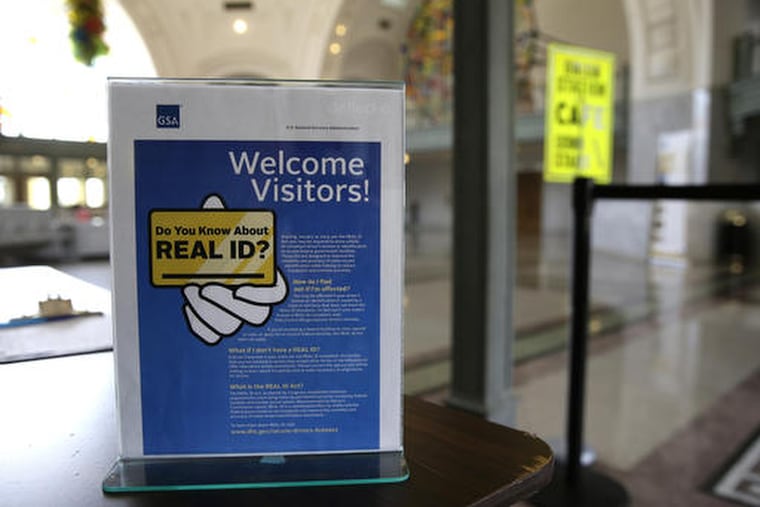Getting Real ID cards can be a challenge for seniors. They might be getting help, and a discount.
Seniors pay less at restaurants, on SEPTA, and at the movies. Now, Pennsylvania lawmakers want to extend the list of discounts to REAL ID cards.

Staff at area senior centers can see firsthand how getting a Real ID driver’s license or identification card could be particularly difficult for older Pennsylvanians.
For instance, one woman who comes to the Coatesville Area Senior Center daily and is in her 90s wanted one of the upgraded ID cards that she could use to board flights and enter federal buildings. But she didn’t have much of her original identifying documentation, such as her birth certificate. Her son and daughter-in-law, who are in their 70s, have been helping her get what she needs.
"I just can’t see that [she] would have been able to figure that out on her own,” said William Pierce, executive director of the Coatesville Area Senior Center. "It’s just inherently apparent these types of changes, while necessary, are burdensome for populations like seniors.”
The post-9/11 federal Real ID Act mandates the security standards that driver’s licenses and identification cards have to meet in order for people to board domestic flights and enter certain secure federal buildings starting Oct. 1, 2020. (Social Security offices don’t require Real ID-compliant cards.) In Pennsylvania, more than two million people are 65 or older, according to Census figures.
As that deadline approaches, State Sen. Maria Collett (D., Montgomery) said her office has been fielding complaints about the process.
“One of the things we hear from constituents most about — the burden of getting a Real ID,” she said.
Collett, Democratic chair of the Senate Aging and Youth Committee, introduced a bill last week that would reduce the cost of Real ID-compliant cards for seniors. In her proposal, Pennsylvanians 65 and older would be exempt from paying the $30 Real ID fee, instead paying only the standard $30.50 fee for renewing driver’s licenses and identification cards.
“Because cost has been one of the prohibitive factors, if we can reduce that for our seniors, we can get them a little bit of relief," she said. "If you’re going to require this, I think you should be sure you’re doing something to help people of limited means on fixed incomes to have this type of identification.”
» READ MORE: REAL ID cards are available in Pennsylvania, as the state seeks to comply with federal security requirements
PennDot officials said the department is reviewing both the bill and the Sept. 9 letter Collett sent to Leslie Richards, the state’s transportation secretary, asking PennDot to consider making some adjustments to the Real ID process while still following federal requirements. The cards, which have uniform security standards and machine-readable technology, require more robust proof of identity and residency.
In addition to lowering the cost, Collett asked PennDot to reduce wait times, which she said residents have told her can stretch to a couple hours.
» READ MORE: Frequently-asked questions about REAL ID
The most frequent complaint from constituents, Collett said, is that they were turned away because the name on their identifying documents did not match exactly: One document had the middle initial while another had the full middle name. She asked PennDot to either eliminate the requirement for an exact middle name match or to better educate residents about the requirement.
Proving identity for some people can be difficult, because of name changes, particularly for older married or divorced women and those with out-of-state marriages, she said. So Collett asked PennDot to consider accepting alternate forms of proof of identity other than marriage or divorce records that still meet security standards but are easier to produce.
That might include bills in the person’s name, she suggested, "instead of going three states away to get the marriage certificate from 1955 when you married your husband.”